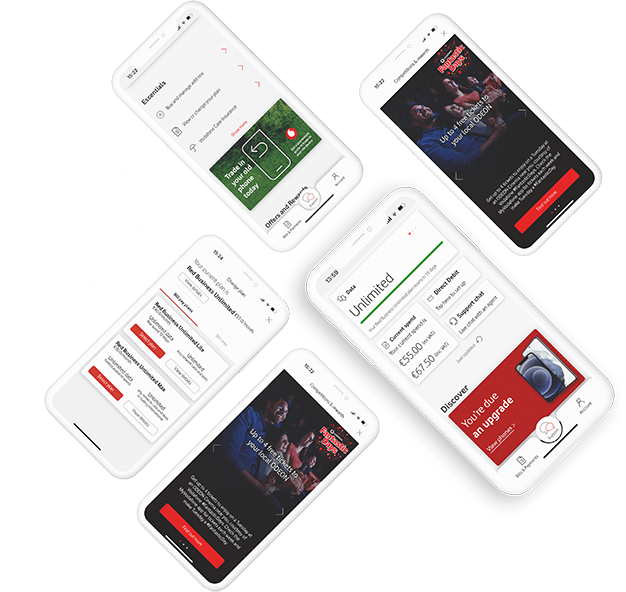
Vodafone Ireland
We are a mobile network operator that provides telecommunications services in Ireland. The company has a long history dating back to the early 1980s when the Irish government established Telecom Éireann as the country's national telecommunications provider.
In the late 1990s, the Irish government decided to privatise Telecom Éireann and split it into two companies: Eircom and Eircell. Eircell was the mobile phone division of Telecom Éireann, and in 2001, it was acquired by Vodafone.
Vodafone Ireland has since grown to become one of the largest mobile network operators in the country, with a strong presence in both the consumer and enterprise markets. The company has invested heavily in its network infrastructure and offers a range of products and services, including mobile voice and data, fixed-line broadband, and cloud-based solutions.
We have also been involved in a number of high-profile initiatives, such as the rollout of 5G services and the sponsorship of the Irish rugby team. We have a strong commitment to corporate social responsibility and have supported a variety of charitable causes and community initiatives over the years.
Overall, Vodafone Ireland has played an important role in the development of Ireland's telecommunications sector and is a major player in the country's digital economy.
Vodafone history - a timeline
1982: Racal Electronics plc, a British defence electronics company, wins a license to operate a cellular network in the UK and forms Racal Vodafone Ltd. The name "Vodafone" is derived from "voice data fone".
1985: The first mobile call is made on the Vodafone network in the UK, by the then-chairman of Vodafone, Sir Ernest Harrison, to his counterpart at British Telecom.
1988: Racal Electronics sells its stake in Racal Vodafone to the American company, Airtouch, which becomes the majority shareholder.
1991: Vodafone Group plc is formed, following the merger of Airtouch and the UK-based telecommunications company, Racal Telecom. The company is listed on the London Stock Exchange.
1993: Vodafone begins trading on the NASDAQ stock exchange in the US.
1999: Vodafone launches its first global brand advertising campaign with the slogan "How are you?". The campaign is designed to highlight the company's focus on customer service.
2000: Vodafone acquires Mannesmann AG, a German telecommunications company, in what is at the time the largest corporate merger in history. The acquisition gives Vodafone a strong presence in the European market.
2001: Vodafone launches the first 3G network in Europe, offering high-speed mobile data services.
2005: Vodafone acquires Telsim, a mobile operator in Turkey, for $4.5 billion. The acquisition makes Vodafone the largest mobile operator in Turkey.
2007: Vodafone announces a partnership with Google to offer Google Maps and other Google services on its mobile phones. The partnership is intended to help Vodafone compete with other mobile operators that are offering similar services.
2010: Vodafone launches its mobile money transfer service, M-Pesa, in Kenya. The service allows users to send and receive money using their mobile phones, and has since expanded to other countries in Africa, Asia, and Europe.
2013: Vodafone acquires Kabel Deutschland, a German cable company, for $10 billion. The acquisition is part of Vodafone's strategy to expand its fixed-line business in Europe.
2014: Vodafone completes the sale of its stake in Verizon Wireless to Verizon Communications for $130 billion, in one of the largest corporate transactions in history. The sale allows Vodafone to focus on its core business in Europe and emerging markets.
2018: Vodafone acquires Liberty Global’s cable networks in Germany and Eastern Europe for $22.7 billion. The acquisition makes Vodafone the largest cable operator in Europe, with a total of 54 million cable and broadband customers.
2020: Vodafone announces its partnership with IBM to develop and implement new digital services for businesses using 5G and cloud technologies. The partnership is aimed at helping businesses improve their efficiency and competitiveness in a rapidly changing digital landscape.
Vodafone has undergone significant growth and transformation throughout its history, expanding from a small cellular network operator in the UK to a global telecommunications giant with operations in over 25 countries. The company has also expanded its business beyond traditional mobile and fixed-line services, venturing into new areas such as mobile payments and digital services.
